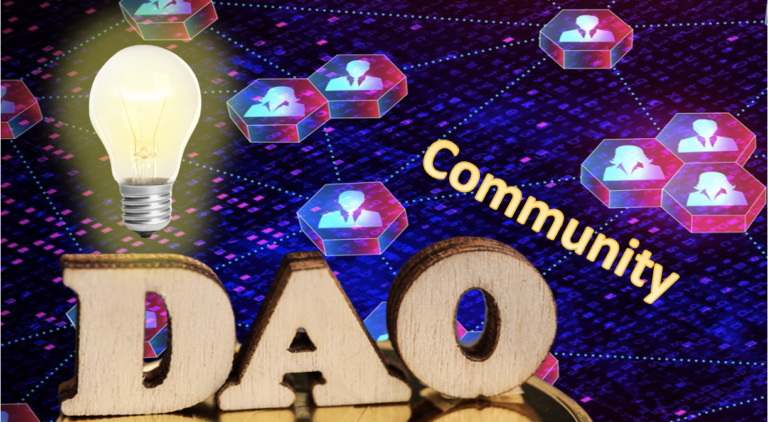As we scan through the blueprints of the dreadnought infrastructure called Facebook (now Meta), and examine its corporate engineering, marketing structures, and profit seeking services… I hope we realize how much we, as a society, are fast-becoming hacked humans choosing to be owned by Meta, and others within the Big Tech Technocracy.

Every time we click agree to the never-ending disclaimers that we never read, we give up our digital rights, privacy, and any potential legal standings we have when it comes to ownership of our data. Facebook (Meta) then turns our binary coded imprints inside out, fine tooth combs our metadata by examining our minutest digital activities, and thereby learns who we are even better than our friends, family, and spouses (as examined at length in Yuval Harari’s Homo Deus).
We have become hacked humans: offering up our privacy, security, and ownership of our digital selves to mega corporations profiting off our metadata. Has humanity already passed through centralization’s event horizon? Is there an escape pod to reclaim all that we have already given up?
Truly decentralized blockchains offer us a way-out of self-imposed espionage and the usurpation of our digital experiences, which is our digital property. But before exploring blockchains as liberation from internet centralization, let’s unpack how centralized technology is chiseling away at our sovereignty.
What happens when a nearly trillion-dollar organization couples supercomputing power with Artificial Intelligence (machine learning)?
Well, predictive analytics is then able to forecast our human behavior to an inconceivable extreme.

Isaac Asimov, in his Foundation Series now made popular on Apple TV, used the term psychohistory to describe a field of mathematics that can predict outcomes based on human behavioral history. Ironically, we have entered a dimension where psychological profiling based on our social media likes, loves, and every other emoji, is helping predicative analytics to know our actions and reactions with precision.
Big Tech then resells this information or uses the information themselves for invasive ad targeting based on our personal data.
Finding ways to increase our screen time on their digital platforms is the primary function of Big Tech. When we broadcast our likes and dislikes to advanced AI technology, the Big Tech platforms are then able to push our passion buttons and create desired responses.
For example, if we show a strong predilection for conservative media, the algorithms will reinforce our angers, loves, mistrusts, by only feeding us inflammatory articles, stories, and political ads, which result in increased screen time on these platforms. The same goes for liberal media, or any other interest that we may be passionate about.
Artificial Intelligence doesn’t care about what we believe in… it has learned that by inflaming the passions behind our beliefs, we become more engaged (and at times enraged, which engages us even more). By increasing our screen time, more of our metadata is collected, warehoused, analyzed, and sold, which leads to greater profits earned by the Big Tech Technocracy.
This is causing divisions within our humanity. Self-reinforcing algorithms that inflame our passions dig us deeper into particular points-of-view, and we become shielded from seeing other people’s perspectives (because objectivity rarely lights passion’s flame).
In grammar school, you may recall learning about “objectivity” in journalism. Such journalistic integrity and objectivity are all but gone. As media conglomerates must compete to stay relevant, they have already succumbed to the weaponization of information, data hoarding, and the battle for eyeballs… there is little hope for objectivity and genuine information. And those dedicated to seeking truth are often attacked by the same forces that we have entrusted to protect our human rights, namely our freedom of speech.
 In fact, through section 230, internet platforms are being encouraged by political parties to de-platform anyone that goes against the grain of their political agenda. It’s scary, but true, to think that the political will of our representatives… just like ourselves, have been compromised by a skewed presentation of information, which is formulated through AI bots pushing our passion buttons. The Facebook whistleblower has brought to light much of what we have already suspected.
In fact, through section 230, internet platforms are being encouraged by political parties to de-platform anyone that goes against the grain of their political agenda. It’s scary, but true, to think that the political will of our representatives… just like ourselves, have been compromised by a skewed presentation of information, which is formulated through AI bots pushing our passion buttons. The Facebook whistleblower has brought to light much of what we have already suspected.
The zeitgeist we are weathering reminds me of what Williams Butler Yeats wrote in his apocalyptic poem The Second Coming, which is: “The best lack all possible conviction, while the worst are filled with passionate intensity.”
The kind of algorithmic manipulation we are facing is subtle and difficult to prove (as we can’t see the code of centralized entities running their platforms, which is why truly decentralized protocols are open-sourced). Hacked humans are becoming puppets, and these algorithms are our strings reinforcing only what we want to hear; thus, we are becoming the victims of algorithmic media calcification, which is the hardening of our perspectives by way of social media manipulation. We are all victims to such hacks, as major media companies committed to providing objective news are virtually extinct.
These are dangerous waters for our humanity as the ethical roots our country was founded upon are under attack. The allure of freemium products is turning us into hacked humans, susceptible to the algorithmic firing squad barraging our eyes and ears daily; technocracies owning these platforms now control our interconnected, digital lives.
Writer, historian, and futurist Yuval Harari has recently discussed these ominous realities enabled by Artificial Intelligence. The culmination of which is the MetaVerse singularity.
Meta’s aim to create a centralized MetaVerse is emblematic of this singularity of technological advancement which will integrate social media, mobile technology, 3-D tech, haptics, and virtual reality all into one experience. This will make our digital experiences much like our IRL experiences, with the caveat that anything possible in our imagination will also be made possible in the MetaVerse.
Thus, the allure of the MetaVerse will be much more appealing than any other sticky apps, games, or services provided over the internet right now (and therefore much more dangerous). Our digital experiences will continue to be owned; (and our digital lives are, indeed, alarmingly owned).
The hackathons made famous by Facebook resulted in Hacked Humans: Meta gives us a free digital experiences and interactions… but this is in exchange for our digital Souls.
We spend full workdays in front of screens, we come home and watch smart TVs, and in between interact with smart phones. When we are in our cars, many of us experience internet streaming services with satellites analyzing our music likes for clues about who we are, and with our smart watches we provide a constant uplink of our biometric data to any one of the Technopolies hoarding our metadata.
We are being thrusted toward interconnected, digital integrations at such a rapid pace, that few have thought about what is happening to our humanity.
With only sixteen hours to a waking day, many have already given up most of their waking lives to the constructs of technopolies. We are fast becoming the cattle on the information superhighway herded by Big Tech.
And it’s not just Meta.
Shoshana Zuboff, in her book The Age of Surveillance Capitalism, delves into the shadows of the technocratic giants: Microsoft, Google, and Amazon and paints a grim picture of human digital capital, where our digital lives are less owned by us, but rather are owned by Big Tech.
Truly decentralized blockchains, where everyday people are able to ensure that protocols are governed by We the People, may be our only escape pod out of Big Tech domination. Most people have yet to understand the primary significance of Satoshi Nakamoto’s technological breakthrough by introducing Bitcoin on Jan 3, 2009..
Blockchains are much more than a method of exchanging cryptocurrency. They will become the base layer of the entire internet.
To understand this concept, let’s look back at what made the internet possible. The TCP/IP protocol allowed servers to communicate digital information with each other. This system of communication is how the internet emerged. Sound, image, video, 3D experiences, all of this can be digitized and transferred through TCP/IP.
In the Internet’s present state, servers must secure the data being exchanged. Centralized entities own these servers. This method for securing data transfer has proven itself unreliable: with just about every corporation now having an internet presence, centralized companies are constantly having their servers hacked, whereby our information is compromised and distributed. Through such hacks, our social security numbers appear on the dark web, along with other private data entrusted to central entities… such as banks and credit card companies. We need a secured internet to replace the hacked web.
Blockchains can secure every piece of data through cryptography online (it is the same technology that protects nuclear arsenals). On blockchains, we can exchange data in a highly secure fashion that cannot be hacked. Bitcoin has never been hacked (only the centralized exchanges that people allow to custody their Bitcoin have been hacked).
 Essentially, a truly decentralized blockchain is a revolutionary protocol that can fix all the problems with TCP/IP and give us much more. We can have privacy in data, security in data, and even Democracy in data by ensuring that entities running on the network do not have control over the entire network. On-chain blockchain governance will enable the democratization of information, and free us from the shackles of information authoritarianism.
Essentially, a truly decentralized blockchain is a revolutionary protocol that can fix all the problems with TCP/IP and give us much more. We can have privacy in data, security in data, and even Democracy in data by ensuring that entities running on the network do not have control over the entire network. On-chain blockchain governance will enable the democratization of information, and free us from the shackles of information authoritarianism.
Bitcoin, for example, requires that full node operators must agree on major protocol changes (hard forks), before any new protocol is introduced into the network. And anyone can be a full node operator in Bitcoin: meaning that you do not have to mine Bitcoin, nor do you have to own Bitcoin to operate a full node.
And with the introduction of the lightning network and the advancements in smart contracts on the Bitcoin Network, Bitcoin can perform the same functions as the internet, yet in a highly secure fashion. There are other blockchains to consider as well, such as Qortal, which is seeking to reinvent the internet on a decentralized blockchain, and provide equal wealth opportunity through minting (an alternative to crypto mining where everyone shares in the block reward).
This is the true value of blockchain technology and cryptocurrency. By way of truly decentralized blockchains, We the People can own the internet. Meta is the exact opposite of a decentralized CryptoVerse. Meta, in essence, is the culmination of centralization. Meta will pull in humanity’s information into a black hole, empowering only itself and its shareholders profiting off our information.
Our escape pod is a truly decentralized blockchain. We need a CryptoVerse instead of the MetaVerse. We need to build a secure internet that We the People own. If centralized entities own all the digital property in the MetaVerse, meaning the actual digital spaces that are likely to become our meeting grounds… this would be akin to property IRL (In Real Life) being owned only by centralized entities. Decentralized crypto is our gateway to securing our online property rights. You may have heard the saying, “Your keys; Your crypto.” These same keys will one day unlock the doors to our internet sovereignty.






